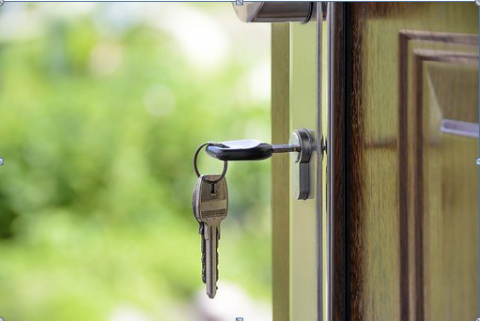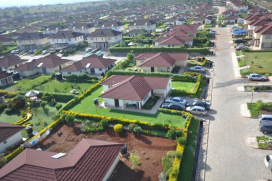Mortage application process in Kenya
Getting a Mortgage in Kenya
Owning a house or a home in Kenya is an accomplishment for most Kenyans. The high cost of the undertaking make it seem impossible for many. Getting a mortgage can make this a reality sooner than later. You’ve been going through property listing websites like ownspace.co.ke doing property search and now you need to proceed to the next step. Below is all you need to know about mortgages.
Mortgage Definition
Mortgage is a loan for the purchase of real property, secured by the property being mortgaged. Mortgage could also mean the document specifying the terms and conditions of the repayment of such a loan or the repayment obligation associated with such a loan.
You own a little piece of the property every time you pay off the mortgage. Transfer of full ownership is made upon the payment of the debt. However, since the security for the mortgage is the property itself, if you default on loan payments to the lender, the lender can sell the property and recoup their money.
Discussed in the Article:
- Mortgage definition
- Types of mortgages
- Available mortgage financing in Kenya
- Documents required to get a mortgage
- Top Mortgage providers in Kenya
- Costs associated with mortgage financing
- The process of getting a mortgage
Types of Mortgages
There are two types of mortgages in Kenya. This classification is based on the rate paid on the loan.
a)Floating Rate Mortgage
This is also known as variable or adjustable rate mortgage. The loan factors in fluctuating rates of the credit market and the mortgage rate goes up or down depending on the market.
When the rates in the credit market are high, the mortgage rate of the repayment are also high and vice versa.
Though risky, variable rates are often cheaper compared to fixed rates mortgages.
b) Fixed Rate Mortgage
This loan has a fixed interest rate that runs through the entire term. The mortgage rate does not fluctuate with the credit market. Though considered safest, fixed rates are often more expensive compared to variable rate mortgages. In instances when interest rates are falling, you risk locking yourself in a higher rate.
Available Mortgage Financing in Kenya
Financial institutions have tailored the mortgages for different clients.
a) Owner-occupied residential mortgage. This is for those who wish to live in the property they purchase with the mortgage.
b) Investment residential mortgage. This is for those that purchase the property as an investment and not as their primary residence.
c) Construction loan. This is for those looking to build from the ground. The amount is often sent to the contractor.
d) To up loans / Equity loan. This is getting extra funds using the equity you have accrued. You can use this loan for other reasons.
e) Equity release on developed properties. This is finance to assist property owners to obtain cash from value of their property.
f) Renovations. This is finance for property improvements.
g) Plot or land purchase. This is finance for purchase of a plot or land.
h) Mortgage take over. This is signing over the mortgage to a new owner while keeping the current terms intact.
i) Joint mortgage. This is taking a mortgage with one or more other people.
Documents Required to Get a Mortgage
For starters, most banks will require a down payment of 20% or 10% of the value of the property. Ensure that you have the property you want to purchase beforehand. We have a recommendation for you, click your preferred link below and pick a property of your preference. There are filters on location, price, bedrooms etc.
- Apartments for sale
- Houses for sale
- Land for sale
For most financial institutions, you will need the following documents to get a mortgage. However, the exact documents required may vary from one institution to the other and from one application to another e.g. whether you are employed, self-employed, an investment group, a company or a diaspora client. The documents may also vary depending on the loan e.g. borrowing against your own property, borrowing to buy a house or land, borrowing to construct or develop or borrowing to buy from a developer.
- A signed mortgage application form
- Copy of the title
- Original copies of your identification documents, ID or Passport
- KRA PIN copy
- An introduction letter from your employer (for those employed)
- 3 months’ pay slip
- Certified bank statements
- Letter of offer or a sales agreement (when looking to purchase)
- Business registration certificate (if in business)
- Books of accounts (audited for companies)Business profile
- Certificate of incorporation
- Memorandum and articles of association
- CR12 (for companies -official confirmation by the Registrar of Companies in Kenya as to whom the directors/shareholders of a company are-)
- Group’s constitution (for investment groups)
- Board/Director’s resolution authorizing the borrowing for the property
- Valuation report of the property (valuation fees are payable by the applicant)
- Rents and rates latest payment receipts
- Rent schedule for income properties
- Confirmation of residential address documents e.g. Utility bill (for diaspora clients)
- Work permit (for diaspora clients)
- Foreign CRB report (for diaspora clients)
- Approved drawings (for construction/development loan)
- Bill of quantities (for construction/development loan)
- Project proposal giving feasibility analysis and cash projections in case of an investment property
Top Mortgage Providers in Kenya
You might want to check them out when you finally make a decision to buy that property.
- Housing Finance Group
- Standard Chartered Bank
- Citibank Kenya
- NCBA Bank Kenya
- KCB Bank
- I&M Bank
- Stanbic Bank
- Diamond Trust Bank
- Absa Bank Kenya
- Co-operative Bank
- Consolidated Bank
Costs Associated With Mortgage Financing
There are costs incurred to ensure performance of the mortgage. Banks are however required by the Central Bank of Kenya to provide you with a Total Cost of Credit breakdown as well as a loan repayment schedule.
These costs may include:
• Legal fees approximately 1-2%
• Commitment fees (will vary from one bank to another)
• The cost of valuation approximately 0.5%
• Stamp duty when transferring ownership documents 4%
• The cost of insuring the property
To be on the safe side, have a mortgage specialist walk you through all the costs and requirements of the loan.
The Process of Getting a Mortgage
The process starts with making an application to the lender. The application will be considered based on the applicant’s score on a number of parameters such as length of contract, amount of personal expenses, documentation of property to be used as security, age, credit score among others. At this stage the application is approved or rejected.
On approval of the application, you are then required to provide some documents for processing.
The financer will then make an offer to you stipulating the terms and conditions of the mortgage.
Once you accept the offer, the lender moves to the perfection of the instruments of the mortgage. The lender will require the seller of the property to release original certificate of title and any other relevant documents.
The lender is now able to register a charge, which is a means by which the lender is able to enforce their rights to the property against the title for the sum borrowed.
Finally, after successfully registering the charge, the lender can now pay directly to the seller of the property or to the borrower depending on the terms of the contract.
The whole process of getting a mortgage can take 3 to 6 months depending on the lender. The process also largely depends on the organization of the borrower in terms of providing the necessary documentation and the speed of the registration at the lands department.







There are no comments yet
Leave a Comment